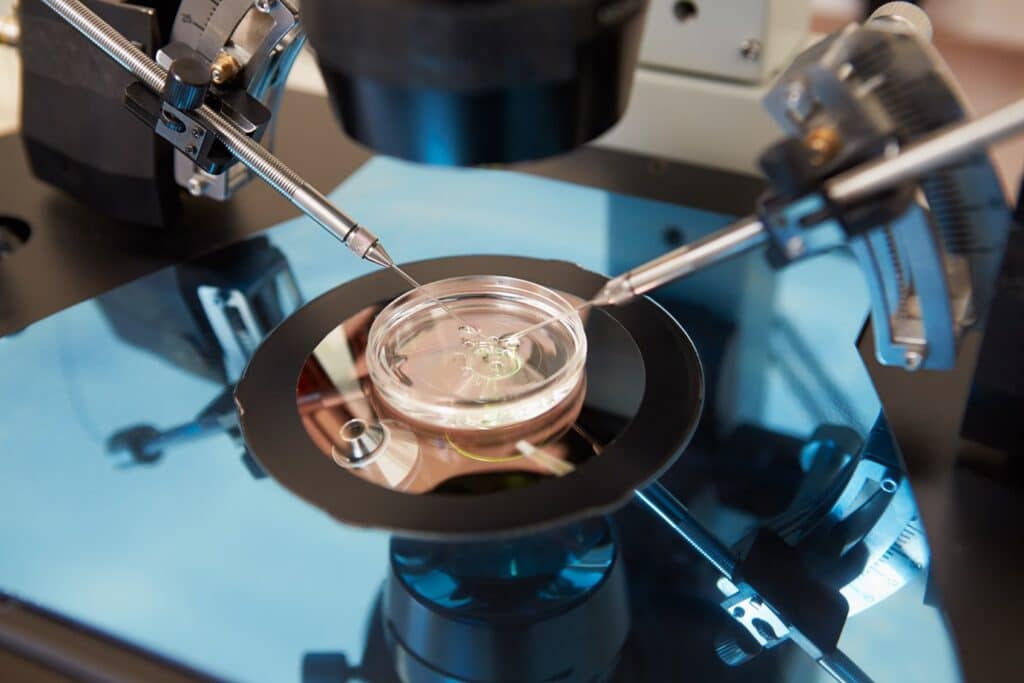The Alabama Supreme Court in the US has ruled that frozen embryos can be considered children under state law. Reproductive rights advocates say this could have sweeping implications for people seeking in vitro fertilisation (IVF).
The first-of-its-kind decision was issued in a pair of wrongful death cases by three couples who had frozen embryos destroyed in an accident at a fertility clinic.
In 2021, a patient at Mobile’s Center for Reproductive Medicine wandered into the clinic’s cryogenic nursery and removed several embryos, dropping them on the floor. The cases lawsuit described this as “killing them”.
In the wrongful death case brought about by the three couples whose embryos had been lost, the mobile county circuit court judge ruled that Alabama’s Wrongful Death of a Minor Act did not apply to embryos outside of the womb and dismissed their case.
Last week, the state’s supreme court threw the ruling out, saying instead that “the Wrongful Death of a Minor Act applies to all unborn children, regardless of their location.”
A member of the all-Republican (conservative) court, Justice Jay Mitchell wrote in the majority ruling: “Unborn children are ‘children’… without exception based on developmental stage, physical location, or any ancillary characteristics”.
Separation of religion and state?
Since Roe v Wade was overturned in the US two years ago, many anti-abortion advocates have pushed for legal amendments to see fetuses and embryos granted the same rights as living children.
In Alabama’s latest ruling, the supreme court repeatedly references the Bible and related religious beliefs as well as biblical scholars – Petrus van Mastricht, Thomas Aquinas and John Calvin.
Chief Justice Thomas Parker wrote: “Human life cannot be wrongfully destroyed without incurring the wrath of a holy God, who views the destruction of His image as an affront to Himself… This is true of unborn human life no less than it is of all other human life- that even before birth, all human beings bear the image of God, and their lives cannot be destroyed without effacing his glory”.
Real life implications for women in America
While Alabama’s supreme court cites biblical theory for their ruling, reproductive rights advocates are sounding the alarm on how this decision will impact the real lives of women in the state.
While the ruling could impact all fertility treatments, IVF is made especially more risky since the medical procedure includes doctors extracting eggs from ovaries to fertilise them with sperm outside of the body, forming embryos that can then be moved to the uterus for pregnancy.
Advocates have noted that the ruling implicates the decision for women to choose IVF as an option for pregnancy as disposing of the unused fertilised eggs could make them liable for punitive damages.
Deputy executive director of Pregnancy Justice, Dana Sussman told the Washington Post that multiple embryos are created in the hopes that a patient can try again if an attempt at a pregnancy fails. This means as many eggs as possible are fertilised and kept frozen and the decision of what to do with the remaining embryos can already be an agonising choice.
“You only need one state to be the first out of the gate, and then the next one will feel less radical,” says Sussman about the conservative ruling. “This is a cause of great concern for anyone that cares about people’s reproductive rights and abortion care.”
Alabama’s new ruling could also make health-care providers reluctant to provide care, advocates say, and more than likely will cause these professionals to move to different states to continue practising– leaving women in Alabama with even less access to care.


